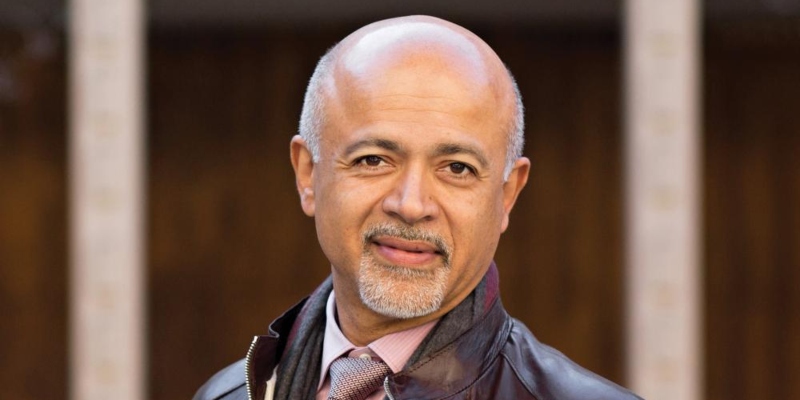
Abraham Verghese on Medicine’s Innate Connection to Storytelling
In Conversation with Mitzi Rapkin on the First Draft Podcast
First Draft: A Dialogue of Writing is a weekly show featuring in-depth interviews with fiction, nonfiction, essay writers, and poets, highlighting the voices of writers as they discuss their work, their craft, and the literary arts. Hosted by Mitzi Rapkin, First Draft celebrates creative writing and the individuals who are dedicated to bringing their carefully chosen words to print as well as the impact writers have on the world we live in.
In this episode, Mitzi talks to Abraham Verghese about his new novel, Covenant of Water.
Subscribe and download the episode, wherever you get your podcasts!
From the episode:
Mitzi Rapkin: I’m thinking about your work as a doctor and thinking about what the body, medicine, and stories have in common. When a body comes in that’s sick, it’s a story in the body and that story is telling you something. And maybe it’s the same thing with your own mind when you’re writing that you can see things later but on immediately, like the power of your subconscious. Maybe they’re both showing things that are incomplete, but also that there’s this other mysterious level going on that the eye can’t see that’s always generating or changing or morphing for us to keep learning.
Abraham Verghese: Yeah, I think that’s very true. I think that’s very true. And one of the most most compelling moments in reading fiction, for me is when the character’s subconscious comes breaking through, and awakens them to something that you as a reader probably already knew, but you’re watching it unfold in the character, you know, that sort of breaking through of the subconscious and it is often an epiphany for the character and sometimes it is for the reader, as well, at that very same moment.
So, yeah, there’s a lot of parallels. And I think, you know, patients give us a history when they come to us, we take a history. Well, the word “story” is embedded in that. And if I’m known for anything in particular, in medicine, one of my great interests has always been how much we can read the body for the clues it offers, you know, the body has been showing physicians for one hundred years or more, maybe two hundred years. It’s been revealing clues as to what’s going on and you just need some skill in examining the body. It’s a skill that’s rapidly waning, which is why I spend a lot of time celebrating it and teaching it.
I think there are those parallels but I’m certainly not conscious of them as I’m writing. I think the two worlds medicine and writing feel, not separate to me, they just feel like me doing my thing. In the daytime, I’m doing certain things and then in the evening, I’m doing certain other things and it is often the same lens and it’s certainly the same person, and the same lens, it’s just going back and forth.
***
Abraham Veghese, MD, MACP, is Professor and Linda R. Meier and Joan F. Lane Provostial Professor, and Vice Chair for the Theory and Practice of Medicine at the School of Medicine at Stanford University. He is also a best-selling author and a physician with a reputation for his focus on healing in an era where technology often overwhelms the human side of medicine. He received the Heinz Award in 2014 and was awarded the National Humanities Medal, presented by President Barack Obama, in 2015. His new novel is The Covenant of Water.
First Draft: A Dialogue on Writing
First Draft: A Dialogue on Writing is a literary podcast produced and hosted by Mitzi Rapkin. Each episode features an in-depth interview with a fiction, non-fiction, essay, or poetry writer. The show is equal parts investigation into the craft of writing and conversation about the topics of an author’s work.



















